
+91 8095511877

+91 8095511877
Gastric bypass surgery is a type of weight loss surgery. There are different types of weight loss surgeries, but a gastric bypass is one of the popular choices. It helps you to lose as much as 80-85 percent of your excess weight.
During the surgery, the doctor will divide your stomach into a small upper pouch and larger lower pouches. After that, the doctor will attach the lower part of your small intestine to the upper pouch.
Thus, the food you have will bypass a large part of your stomach and small intestine. So you will absorb lesser calories from the food you eat. Also, you will feel full by having a small amount of food. You would also refrain from high calorie shakes, sweets, alcohol, and other high-calorie foods by a protective mechanism called "Dumping". It is part of the RYGB bypass procedure.
A gastric bypass is the most potent procedure to control other issues you may have due to obesity. It helps to control and even reverses high blood pressure, Type 2 diabetes, high cholesterol, that you may have. You will also get relief from obstructive sleep apnea if you have it.
There are different types of gastric bypass, Roux-en-Y gastric bypass(RYGB) is the most common one. You may have the surgery if your BMI is above 40. Another case is if your BMI is above 35 and you other health issues, especially impaired glucose tolerance and Type 2 Diabetes due to your weight.
A gastric bypass is a safe procedure with very few risks and complications. You also will have excellent results in weight loss by having it. But you will have to follow a proper diet as suggested by the doctor to maintain it for long.
You may have laparoscopic or Robotic surgery for gastric bypass. In laparoscopic or Robotic surgery will need only a few tiny punctures with no stitches. The results you will have will be the same with both, and only the technique will change.
If you are obese or overweight and have health issues due to it, you need to lose weight. Losing weight, you will know it is a lot more difficult than putting on.
You will have to try very, very hard to lose some weight. There are various methods to do so. These include
Diet changes- Diet control is the first step to lose weight if your weight gain is due to overeating. You need to limit your food intake and avoid junk foods. It should contain more nutrients and less fat. Your dietician can help you to arrive at a proper diet plan.
Exercises - Physical exercises can help you to lose weight. It burns up the calories in your body and also uses up the extra fat, making you thinner than before. But you need to be dedicated to reaching your goal.
You will also need the guidance of experts in the field.
If these do not help you lose weight despite your best efforts, you may opt for gastric bypass surgery. A gastric bypass so is not the first step towards weight loss. It is not a miracle procedure that will help you to lose weight without doing anything else.
By deciding to have it, you are committing yourself to a new life. You should be ready to do things as needed after the surgery.
During a gastric bypass, the surgeon will divide your stomach into a small upper part and a large lower part. He or she will also attach the lower part of the intestine to the upper part.
As the upper pouch is small, you will feel full with small quantities of food. Due to the smaller size, the food remains in the stomach only for a short time. It causes less absorption of calories in the stomach.
From the stomach, the partially digested food moves straight into the lower part of the small intestine. It also results in the absorption of fewer calories of food.It also helps with the dumping mechanism.
A gastric bypass helps you by limiting your food intake and reducing the absorption of calories from the food you have. It also helps to control type 2 diabetes that also contributes to your weight.
A gastric bypass is not for everyone who is overweight. You will have to fulfill some criteria to have it.
The first thing the doctor will look into is your intent and desire to lose weight. You will have to try your best to lose weight by the usual methods before having it.
To assess it, the doctors will want you to do some preparation for it. During this phase, you will have to show your intent by losing some weight through diet control or exercises.
If you gain weight during it, the doctors will feel that you are not serious in your efforts and may be reluctant to the surgery. They may be unsure that you will be able to make the necessary adjustments in life after surgery.
Apart from intent and desire, there are some other factors too. They are
General health issues- You should be medically fit to have the surgery. If you have any severe heart, lung, liver, kidney problems, etc. you will not have the surgery.
Emotional and mental health issues- You should be emotionally and mentally fit to have the surgery. It is because you will have to start a new life after surgery regarding your food habits. Those with emotional or mental issues will have to wait until it is over.
Some studies show that those who have weight-loss surgeries have an increased risk of suicide attempts. The reason behind it is not very clear. So anyone with a history of the same is not the right candidate for gastric bypass.
You will have a complete medical exam to make sure that you are fit for the surgery. You should have the health to withstand a major operation and be able to recover from it.
The doctors will also make sure that you decide with a sound mind with a proper idea about all aspects of surgery. You should be aware of the procedure and what happens during it. They will also explain to you about the possible risks and complications.
It is possible to reverse the effects of a gastric bypass. But you will need another surgery to do it. So, it is always better to decide by taking into count all factors.
Your doctors will also want you to do some preparation for it. It may take months or weeks for you to prepare.
During this phase, you will
You will have to lose some weight during this phase so that the doctors will be sure of your intent. If you gain weight during this period, doctors will feel that you are not serious in your efforts.
During gastric bypass surgery, the surgeon will make some changes in your stomach as a first step. SThen he or she will change the connection between the stomach and the small intestine. This way, after surgery, the food you eat bypasses a large part of the stomach and intestine during digestion.
The goals of surgery are to
The procedure will take about four to five hours to complete. You will have to be in the hospital for 3 to 5 days. You will recover within two weeks of surgery. The effects of surgery will show within 5 to 6 months.
Before surgery
You will be in the hospital the day before the gastric bypass. The doctors will do a last-minute check on your body to make sure there is nothing wrong.
You will not have any food from the afternoon, and there will be an IV line to get nutrients into your body. In the night, you will have a mild sedative to calm down and sleep better. You will also have to do some breathing exercises to improve lung functions.
During surgery
You will go to the operating room at the time fixed. The anesthetist will start the general anesthesia procedure by a tiny IV injection, which you won't feel much. You would be sleeping throughout the procedure.
Laparoscopic or Robotic surgery will need only a few tiny punctures. The surgeon will close the punctures with glue or tiny sutures.
After surgery
Soon after surgery, you will be in a recovery room for you to be comfortably up and about. On getting up, you will see a few wires, leads, and tubes in your body. These are to help the doctors monitor you carefully for some time.
After some time, the staff will take you to the ICU for observation only. It is a routine practice. You are shifted to your room the next day. Once in your room, the doctors will instruct you about things to do during your recovery. Following these instructions will make it faster and better.
You will be in hospital for 2-4 days. In the first few days, you will have only liquid foods. You are encouraged to walk from the day of surgery in the post-operative period to avoid blood clots in your legs. It also helps in faster healing of the wound.
Keeping the wound dry and clean is vital to prevent infections and faster healing. You will be able to go back home after five days or so.
Gastric bypass surgery is a very safe procedure with a very high success rate. However, as with any other major surgical procedure, there are few risks or side effects. These risks could be short term (during or immediately after the surgery ) or long term( in weeks or months after surgery)
Short term risks can include
Long term complications may include:
You may also have some of the following issues
It is possible to control these by having a proper diet plan and rehabilitation routines like mild exercises.
A gastric bypass is a big step towards weight loss. But, importantly, that is not the only step. You will have to do a lot many other things to prevent weight gain after it.
These include
By doing these things, you will be able to lose more weight and avoid weight gain. Or else, you will put on weight that you have lost.
You will be on a liquid diet with only clear liquids as food for the first few days. Thicker drinks like broth, milk, smooth foods (without any chunks) will be part of the diet during the second week.
After two weeks, you can add soft and pureed(mashed) foods like cottage cheese, soft scrambled eggs, cooked vegetables, fruits, etc. You can have solid foods after 4 to 6 weeks.
After a gastric bypass, you will have a diet plan for the rest of your life. Sicking on to it will help to retain the benefits of the procedure.
You will be able to lose up to 80-85% of your excess body weight through it. Even after five years, you will be able to retain almost 55 to 70% of the initial results.


This article has been reviewed for medical correctness and relevance by
Dr Aloy Mukherjee
Dr. Aloy J Mukherjee is an Advanced Minimal Access, Gastro-Intestinal , HPB , Obesity and Metabolic Surgical Specialist (Bariatric), Thoracoscopic and Endocrine( Thyroid, Parathyroid, Breast, Adrenal Gland) Surgeon. He specialises in Laparoscopy or Robotic Surgery. Dr Mukherjee has an experience of 23+ years in these fields. After completing his MBBS from Gauhati Medical College, Guwahati in 1993 and Masters in Surgery (General Surgery) in 2001,he completed his senior residency from AIIMS, New Delhi in 2004. He was awarded Fellowship of the Indian Association of Gastro Intestinal Endo Surgeons in 2008.In 2008, he was conferred the Honorary membership of the National Academy of Medical Sciences (India) in recognition to the significant contribution for advancement of Medical Sciences. He received his Robotic Surgical training in 2016 and received his Fellowship in Advanced Laparoscopic Surgery(FALS) and Fellowship in Minimal Access Surgery(FMAS) in 2017.
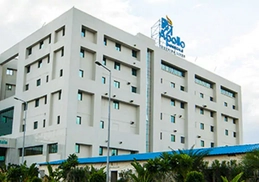
Apollo Chennai
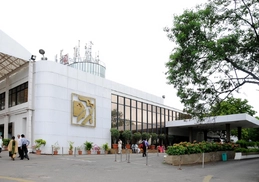
Apollo Health City
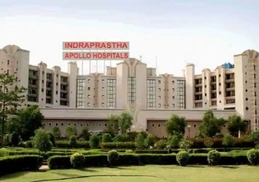
Apollo Indraprastha
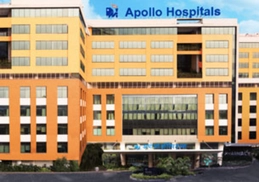
Apollo Mumbai
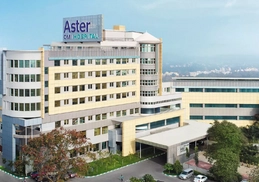
Aster CMI
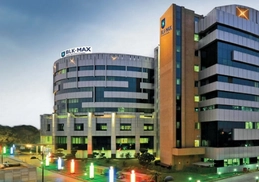
BLK Hospital
Frequently Asked Questions
How much weight will I lose with gastric bypass surgery?
Is gastric bypass surgery a safe one?
Is gastric bypass surgery reversible?
How does a gastric bypass help me to lose weight?
What is the cost of gastric bypass surgery in India?